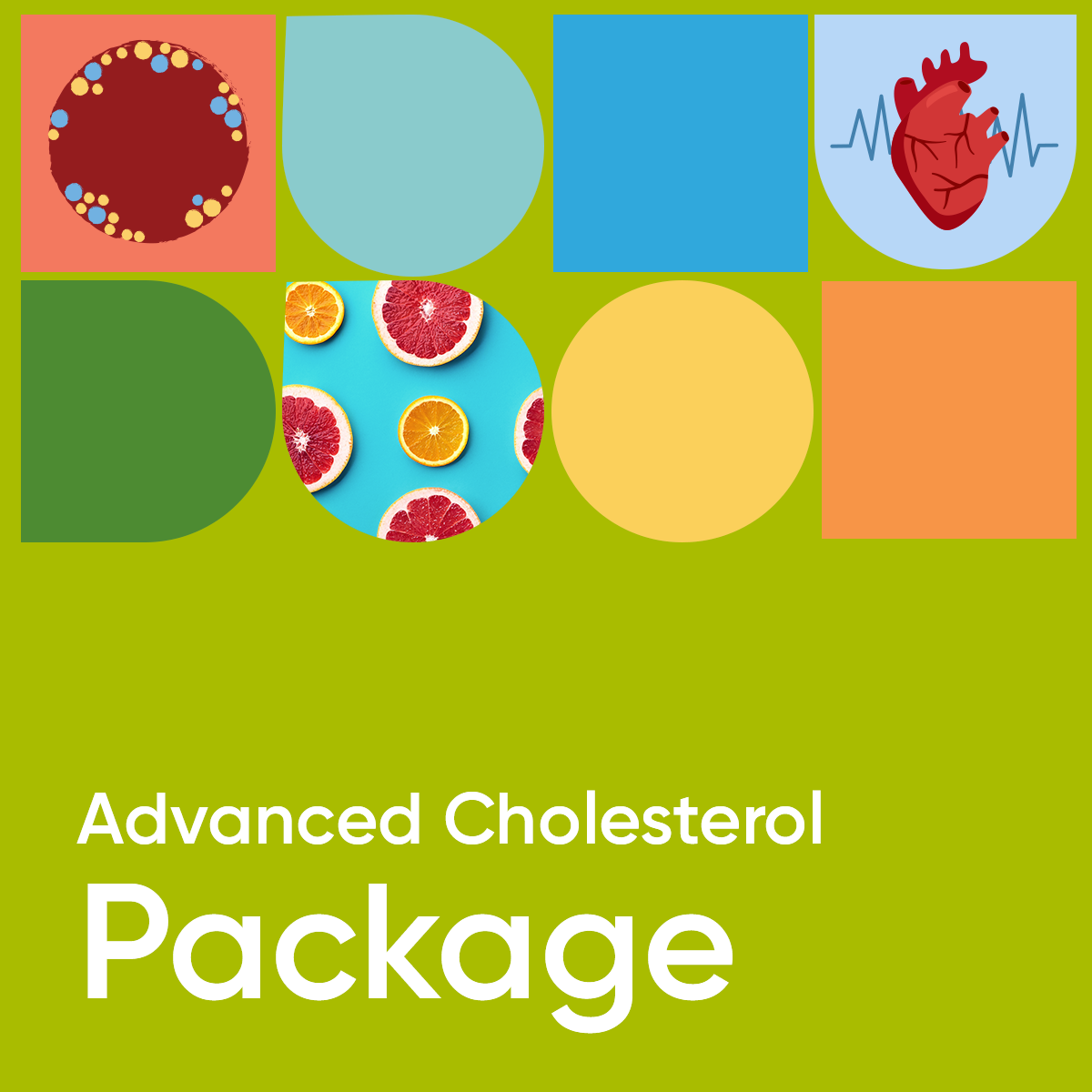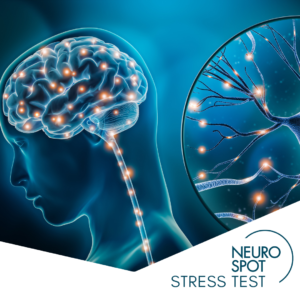Advanced Cholesterol Package
$539.00
Accurate Trusted Results
Phone
Support
100% Secure Checkout
An accurate and reliable cholesterol blood test package
✔️ Used by GPs
✔️ National Cholesterol Education Program Adult Treatment Panel (NCEP ATP III) Approved
✔️ Accurate fasting serum testing
The LipoScan bundle provides your unique cholesterol fingerprint. Regular cholesterol tests are only a rough indicator and can fail to spot high-risk cholesterol levels, while returning misleading warnings for healthy people. The LipoScan bundle goes deeper than ordinary tests by analysing the small particle LDL sub-fractions, level of LDL oxidation, Lp(a) and ratios of pro- and anti-inflammatory fatty acids. With this information you (and/or your practitioner) can plan further treatment or dietary adjustments to protect your cardiac health and your future.
Advanced Cholesterol Package
It is a popular fallacy that high cholesterol levels automatically mean an increased heart attack risk. The fact is that nearly half of the patients without heart attack have higher cholesterol levels as well and that a considerable portion of heart attack patients has low total cholesterol levels. Individual differences exist in particular with respect to the LDL levels and, even more importantly, in the size distribution of the LDL particles. The small LDL particles in particular have a very high atherogenic potential. Therefore, it is less important how much cholesterol a patient has, but which type of cholesterol is elevated and which size distribution the cholesterol particles have. These are the parameters of a cholesterol blood test that the risk assessment and therapy depend on.
What is included with this comprehensive cholesterol blood test?
LipoScan test
The LipoScan test reveals your true cholesterol risk by going deeper than ordinary tests and analysing LDL ‘sub-fractions’. LDL sub-fractions are a type of fat particle in your blood. These particles are absorbed by cells in the blood vessel wall and may contribute to arterial plaque build-up or coronary artery disease. LDL sub-fractions can conceal a high-risk cholesterol problem – even when your overall level of LDL cholesterol is “normal.” The testing for small LDL subfractions has been approved by the “National Cholesterol Education Program Adult Treatment Panel (NCEP ATP III)“ as a new method that can be used to identify the risk of cardiovascular diseases.
Oxidated LDL Test
The Oxidated-LDL Test offers analysis of arteriosclerosis risk and possible therapy through the identification of oxidised LDL cholesterol particles, determining your actual cardiovascular risk. The peroxidation of lipid plays a key role in a multitude of pathologic processes. Products of lipid peroxidation arise from the impact of free radicals on unsaturated fatty acids. The identification of the oxidised LDL cholesterol is important for the analysis of the arteriosclerosis risk and the therapy in case of already apparent specification of the small LDL particles. The inflammatory processes arising through this lead to the accumulation of further immunoreactive cells which forms arteriosclerotic plaque.
Lp(a)
Elevated levels of Lp(a) are a strong predictor of an individual's risk for developing cardiovascular disease, such as heart attacks and strokes. By testing for Lp(a), individuals with elevated levels can be identified early, allowing for early intervention and lifestyle changes that can reduce the risk of cardiovascular disease. Lp(a) levels are largely determined by genetics, so individuals with a family history of cardiovascular disease or high Lp(a) levels may benefit from testing.
Fatty Acid Status Test
The Fatty Acid Status test determines your pro- and anti-inflammatory status by differentiation of saturated, mono-unsaturated, poly-unsaturated and trans fatty acids in your blood serum. An unfavourable fatty acid status promotes inflammation in our body. The fatty acids linoleic acid and arachidonic acid are part of the group of Omega-6 fatty acids. Alpha-Linolenic acid (ALA), Eicosapentaenoic acid (EPA) and docosahexaenoic acid (DHA) count among the Omega-3 fatty acids. The ratio of 1:5 is considered to be an ideal ratio of Omega-3 and Omega-6 fatty acids. In many cases, however, today's eating habits result in a ratio of 1:10 to 1:50! The effects of this imbalance include in particular the production of inflammation in our body, and the increase in the risk of thrombosis. The immediate consequences may also be diseases such as rheumatism, asthma, atopic dermatitis, cardiovascular diseases or diabetes mellitus.
How can I do the advanced cholesterol package?
1. Place your order
Once we receive your order, a test kit is sent to you. It includes a Pathology Request Form, so you can have your blood drawn at a pathology centre near you. It also contains collection instructions and 2 x transport tubes so you can safely send your blood serum sample to ImuPro for testing. This test requires 12 hour fasting.
2. Your sample is tested
Your fasting serum blood sample will be analysed in our lab in Germany.
3. You receive your results
You will receive your therapist report and summary report with recommendations for dietary changes.
Note: You don’t need a GP referral for your ImuPro test, as we provide the relevant forms. If you’re located outside of Australia, please contact us before ordering as the process differs slightly.

In this bundle you will receive
- A therapist’s report outlining the results of your blood serum analysis – it is recommended this is taken to your practitioner for further advice on treatments or follow up
- A patient’s booklet explaining your results
- Full therapist report based on analysis of your blood serum. You may like to take your results to your Practitioner.
Frequently Asked Questions
What is the difference between the LipoScan Bundle and other cholesterol tests?
Most cholesterol tests are only screening for the total amount of cholesterol in your blood however it is less important how much cholesterol a patient has, and more important which type of cholesterol is elevated and which size distribution the cholesterol particles have. These are the parameters the risk assessment and the therapy depend on. The identification of the oxidised LDL cholesterol is important for the analysis of the arteriosclerosis risk. The inflammatory processes arising through this lead to the accumulation of further arteriosclerotic plaque. An unfavourable fatty acid status also promotes inflammaton which contributes to this process. The LipoScan Bundle includes a comprehensive profile of your actual cardiovascular health, risk and guides your natural treatment.
What do I do with my results?
If high quantities of atherogenic LDL particles have actually been found, there will be the possibility to identify the cause of these findings. The interaction of various genes may be responsible in this case. They can be identified by means of a simple genetic test. This can be used to derive a specific, individual therapy for the patient. This therapy comprises both allopathic approaches using lipid-lowering drugs and the well-targeted change of living habits and nutrition. It is made clear to the patient using graphics what different ways of living mean in connection with his genetic profile. This makes it possible for the patient to make necessary adjustments. You will find out whether you consume too many Omega-6 fatty acids and your risk of inflammation. In addition, the test can also be used to determine the individual requirement of Omega-3 fatty acids and guide the change of diet. It is also suitable as follow up to measure the effectiveness of the therapy.
Should I do the LipoScan Bundle if my total cholesterol is ok?
Yes. Demographic studies have shown that the classical lipid profiles of patients with coronary artery diseases do not significantly differ from those of healthy persons. Nearly 50% of people who develop a cardiac disease have “normal” cholesterol levels. LDL cholesterol, the lipid that is most frequently associated with cardiovascular diseases, is heterogeneous (different) and consists of up to seven subfractions. Large circulating LDL particles are less atherogenic. Small dense LDL particles are associated with a three times higher risk of cardiovascular diseases. Traditional lipid profiles do not identify the risk of cardiovascular diseases that are caused by the presence of small dense LDL and IDL particles. Dangerous LDL particles may hide behind normal cholesterol levels and, conversely, elevated cholesterol levels do not inevitably have to be associated with a heart attack risk. Patients supposed to need treatment (on account of high cholesterol levels) turn out to be not at risk, whereas persons supposed to be healthy (on account of normal cholesterol levels) turn out to be risk patients.
How long do results take?
Once we have safely received your blood serum samples they will be forwarded to our lab. Results take 10-20 business days and will be emailed to you (unless you have been referred by your healthcare practitioner).
What are fatty acids?
Fatty acids are the building blocks of fats and break down during digestion to form fatty acids. These acids are necessary for the normal functioning of all systems in the body and you can get essential fatty acids from food sources. There are two categories of essential fatty acids: Omega-3 and Omega-6 and they both act differently. Omega-3 fatty acids promote heart health, while Omega-6 increase immune response, inflammation, and blood pressure. These fatty acids make hormones that regulate the immune system and central nervous system. The fatty acid test will measure and break down the essential fatty acids so that you can modify your diet to obtain optimal levels and create the correct balance.
Can I get this test via my GP?
Yes, your GP can refer you for this test. Ask us for a GP referral form.
How can I get the LipoScan Bundle done?
Once you place your order we post your LipoScan Bundle test kit. This contains a pathology request form for your local collection centre, instructions, 2 transport tubes and 2 biohazard specimen bags. All you need t do is fast for 12 hours, then have your blood drawn at pathology. They will prepare your samples to be stable at room temperature and return it to you. Simply pop them in the provided transport tubes and send them back to ImuPro.
What can I expect from my results?
You will receive your lab report with quantitative values for each LDL particle as well as the level of oxidation and these wil be presented on a graph. You will also receive your summary report which details what these findings need as well as options for treatment or further investigatons. You will also receive your lab report with quantitative values for each fatty acid including ALA, EPA, DHA and more.







